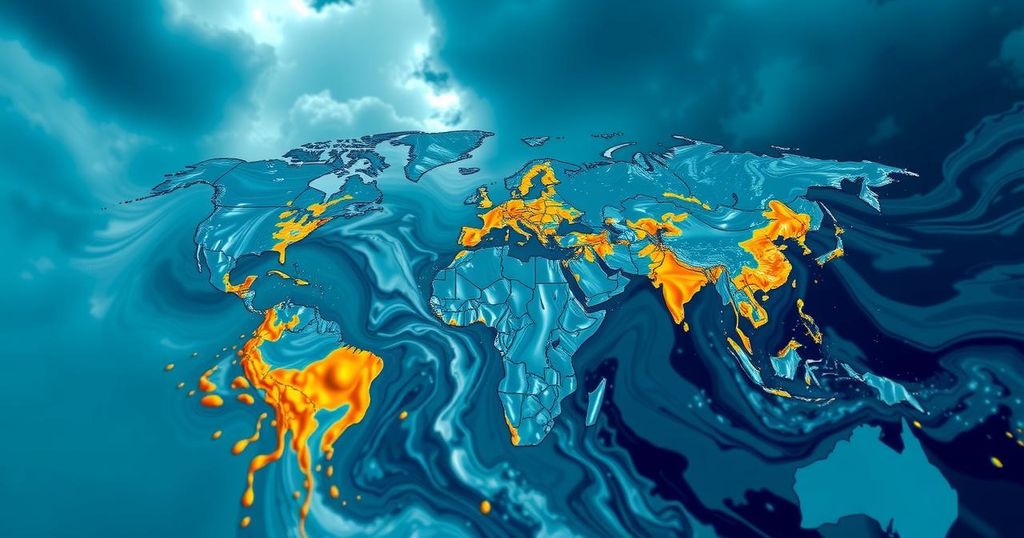Climate Change Increases Mortality from Extreme Weather Events
Human-caused climate change has intensified the ten deadliest extreme weather events of the last two decades, resulting in over 570,000 deaths across multiple continents, according to a new analysis by the World Weather Attribution group. The study links these catastrophic events directly to climate change, emphasizing the need for urgent action to address fossil fuel dependency and enhance resilience against escalating weather-related disasters.
A recent analysis conducted by the World Weather Attribution (WWA) group at Imperial College London has revealed that human-induced climate change has exacerbated the severity and likelihood of the ten deadliest extreme weather events in the last two decades. These catastrophic events, which include storms, heatwaves, and floods, have claimed over 570,000 lives across Europe, Africa, and Asia. The findings demonstrate that scientists can now detect the influence of climate change on complex weather phenomena. Dr. Friederike Otto, co-founder and lead of WWA, emphasized the urgency for political leaders to reconsider their reliance on fossil fuels, stating that ongoing fossil fuel consumption will perpetuate human suffering. The study examined the deadliest weather events recorded in the International Disaster Database since 2004, linking them to climate change for the first time. Notably, the drought in Somalia in 2011 was identified as the deadliest of this period, with over 250,000 fatalities attributed to climate-induced low rainfall. The analysis also highlighted that the extreme heatwaves in Europe in 2015, 2022, and 2023 were intensified by climate change, contributing significantly to mortality rates. Furthermore, tropical cyclones in Bangladesh, Myanmar, and the Philippines, along with devastating floods in India, were similarly intensified by human-induced climate changes. Researchers caution that the actual death toll from these events may be much higher, due to underreporting, especially in vulnerable regions. The pioneering methods developed by Dr. Otto and Dutch climatologist Geert Jan van Oldenborgh have enabled scientists to link specific weather events to anthropogenic climate factors by utilizing sophisticated atmospheric models. These models compare the likelihood of extreme weather under current global warming conditions to hypothetical scenarios devoid of industrialization’s impact. As articulated by Roop Singh from the Red Cross Red Crescent Climate Centre, the escalating human toll from these extreme events highlights the inadequate preparedness for even minor increases in global temperatures, underscoring the urgent need for resilience-building measures in the face of advancing climate change.
The increasing frequency and intensity of extreme weather events are widely recognized as being influenced by climate change, particularly human activities that contribute to greenhouse gas emissions. Scientific studies over recent decades have established a correlation between rising global temperatures and the severity of various weather-related disasters. The ability to attribute specific extreme weather events to climate change has evolved with advancements in methodologies used to analyze atmospheric data. This recent report underscores the significance of understanding these connections in order to inform policy decisions and enhance readiness against future climate impacts.
The analysis by the World Weather Attribution group underscores the critical link between human-induced climate change and the increasing severity of extreme weather events. With over half a million lives lost due to ten major catastrophes, the study serves as a stark reminder of the urgent need for global leaders to shift away from fossil fuels and invest in resilience-building strategies to mitigate the worsening effects of climate change. As noted by experts, the impact of even slight temperature increases will continue to yield more extreme weather events, necessitating immediate and sustained action worldwide.
Original Source: www.bbc.co.uk




Post Comment